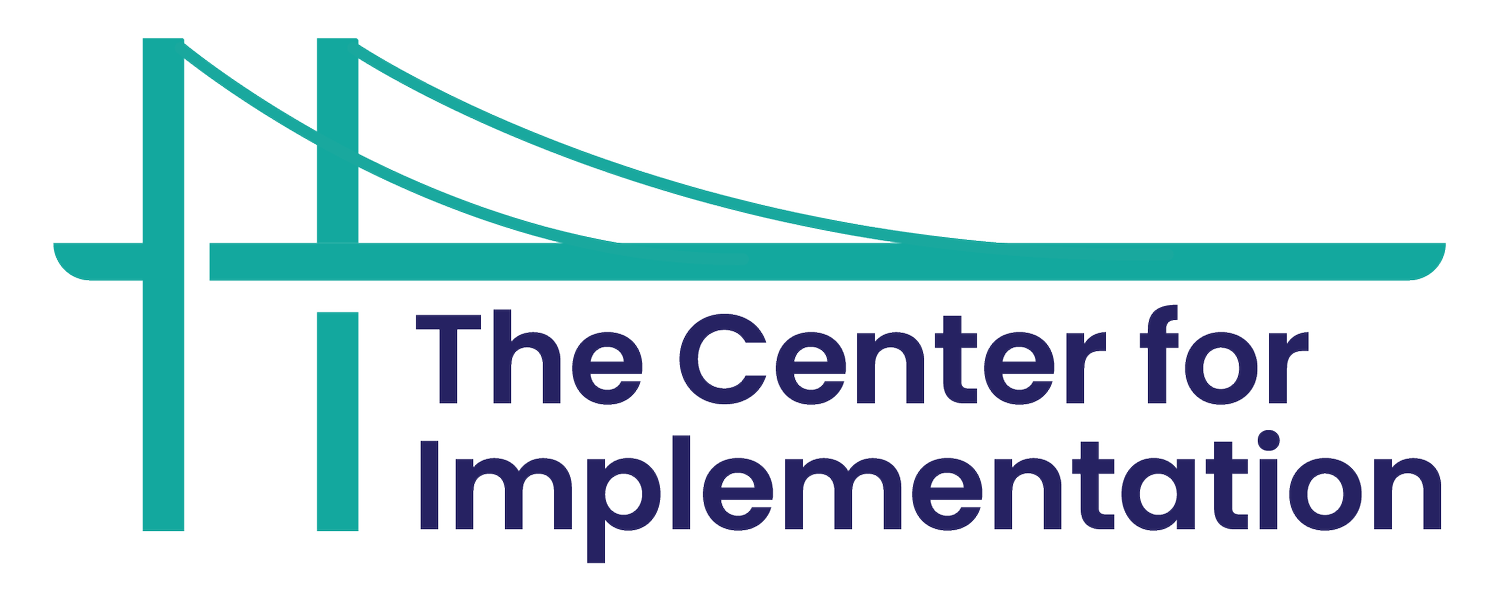Project Spotlight: The Benefits of Implementation Science for Supporting Innovative Approaches to Evidence Generation
By Brenna Keatinge, Senior Associate, Blueprin, and Kelly O’Connor, Senior Associate, Blueprint
Blueprint is an organization that helps decision-makers generate and mobilize evidence to solve complex challenges. Recently, Blueprint has been working to shift how we think about and generate evidence beyond evaluation to build evidence that is more actionable for policy-makers and practitioners. We identified implementation science as a key strategy for building more actionable evidence, and the training we completed with TCI has reinforced how important implementation science is for achieving this goal. Here we outline some of the ways that IS has positively contributed to Blueprint’s work.
Our work with Future Skills Centre (FSC), for example, integrates implementation science alongside more typical evaluation activities to build more actionable evidence. FSC is a Pan-Canadian organization that prototypes, tests and measures new and innovative approaches to skills development and training. As one of FSC’s founding consortium partners, Blueprint leads the Centre’s evidence generation strategy and works with FSC grantees to build evidence that supports the innovation, improvement and scaling of skills development solutions.
Implementation science supports rethinking of traditional evidence building approaches
One of the real gifts of learning about implementation science for our work with FSC has been a rethinking of how and why evidence generation happens. Traditional evidence generation approaches often focus on measuring outcomes at a single point in time to decide “what works.” The emphasis in implementation science on using process models like Knowledge-to-Action has helped us think about evidence generation across the lifecycle of an intervention from design to evaluation and scaling. Learning about these models has helped push us towards evidence building that is more agile, timely and useful for skills development practitioners.
Implementation science shifts how we work with innovation projects
Implementation science has also shifted how we work with FSC project teams. It’s enabled us to triage the evidence building activities a project needs based on where they are in the implementation lifecycle. We have also been able to assist grantees with implementation, for example by helping them address potential implementation barriers before they push an intervention off-track, and to leverage existing resources. Importantly, implementation science provides an established set of resources and a language with which to communicate with grantees about the importance of high-quality implementation.
Implementation science makes our findings more relevant and useful
Implementation science has also helped us to focus evidence generation on the right issues at the right time. This makes our findings more relevant and useful for FSC grantees. For example, grantees that are delivering their intervention for the first time are often still determining the content of their intervention and what it takes to deliver their program. Introducing concepts like barriers and facilitators can support initial learnings and help grantees hone their models and improve their delivery.
This article was featured in our monthly Implementation in Action bulletin! Want to receive our next issue? Subscribe here.
